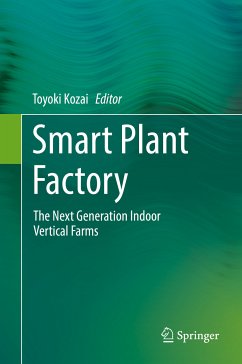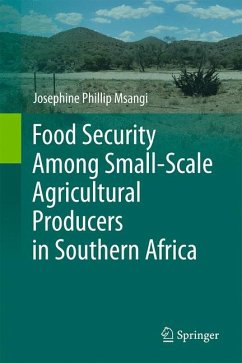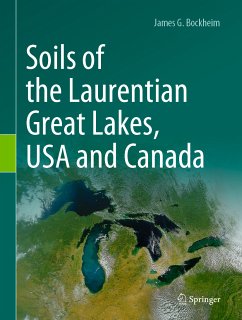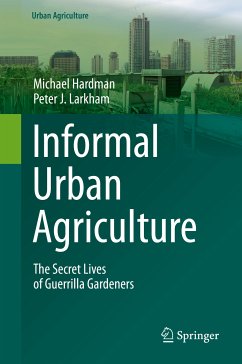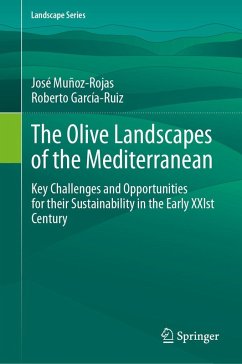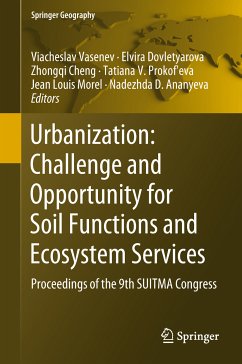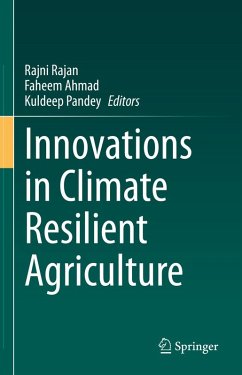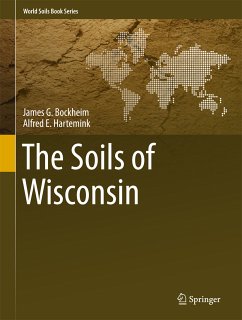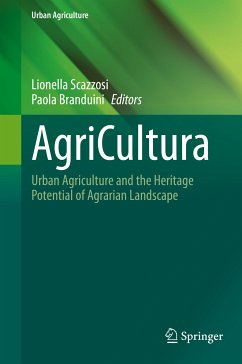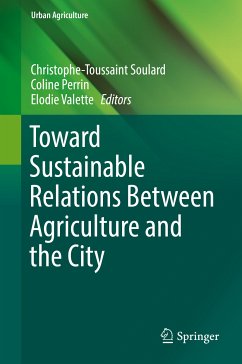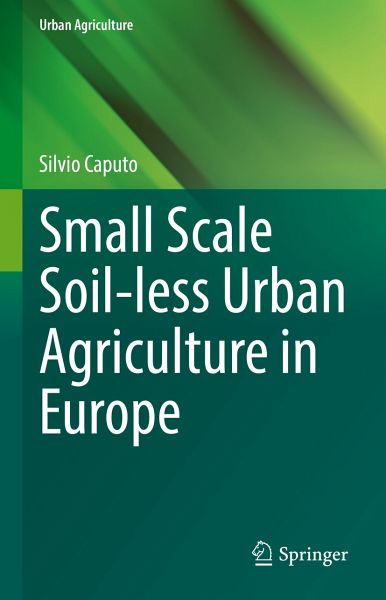
Small Scale Soil-less Urban Agriculture in Europe (eBook, PDF)
Versandkostenfrei!
Sofort per Download lieferbar
Statt: 139,09 €**
96,95 €
inkl. MwSt.
**Preis der gedruckten Ausgabe (Gebundenes Buch)
Alle Infos zum eBook verschenkenWeitere Ausgaben:

PAYBACK Punkte
48 °P sammeln!
This Monograph focuses on the new approaches that urban agriculture offers to grow food in cities. The author paints a dynamic picture of soil-less and indoor techniques that are currently emerging. A growing number of small scale community-led and entrepreneurial initiatives are using such techniques for diverse objectives: to increase resource efficiency; to strengthen food security; to educate and inform or to exploit new market opportunities. The described studies demonstrate how technologies that are typically used in high-tech food production can also be harnessed in small projects to ge...
This Monograph focuses on the new approaches that urban agriculture offers to grow food in cities. The author paints a dynamic picture of soil-less and indoor techniques that are currently emerging. A growing number of small scale community-led and entrepreneurial initiatives are using such techniques for diverse objectives: to increase resource efficiency; to strengthen food security; to educate and inform or to exploit new market opportunities. The described studies demonstrate how technologies that are typically used in high-tech food production can also be harnessed in small projects to generate social and economic benefits at a local level.
The author puts a focus on three aspects: to outline the context within which small scale soil-less urban agriculture is developing in Europe; to give an overview of the state-of-the-art of projects focusing on this area through case study analysis and to elaborate on emerging questions. Such questions include: is the use of soil-less urban agriculture changing the relationship with, and perception of, what is natural and sustainable for urban farmers and small enterprises working in this sector? What is the perceived potential of these soil-less and indoor forms of urban agriculture to meet environmental, social and economic goals?
By answering these and other questions, the volume is a valuable resource for researchers in agriculture and sustainability, as well as urban farmers.
The author puts a focus on three aspects: to outline the context within which small scale soil-less urban agriculture is developing in Europe; to give an overview of the state-of-the-art of projects focusing on this area through case study analysis and to elaborate on emerging questions. Such questions include: is the use of soil-less urban agriculture changing the relationship with, and perception of, what is natural and sustainable for urban farmers and small enterprises working in this sector? What is the perceived potential of these soil-less and indoor forms of urban agriculture to meet environmental, social and economic goals?
By answering these and other questions, the volume is a valuable resource for researchers in agriculture and sustainability, as well as urban farmers.
Dieser Download kann aus rechtlichen Gründen nur mit Rechnungsadresse in A, B, BG, CY, CZ, D, DK, EW, E, FIN, F, GR, HR, H, IRL, I, LT, L, LR, M, NL, PL, P, R, S, SLO, SK ausgeliefert werden.



